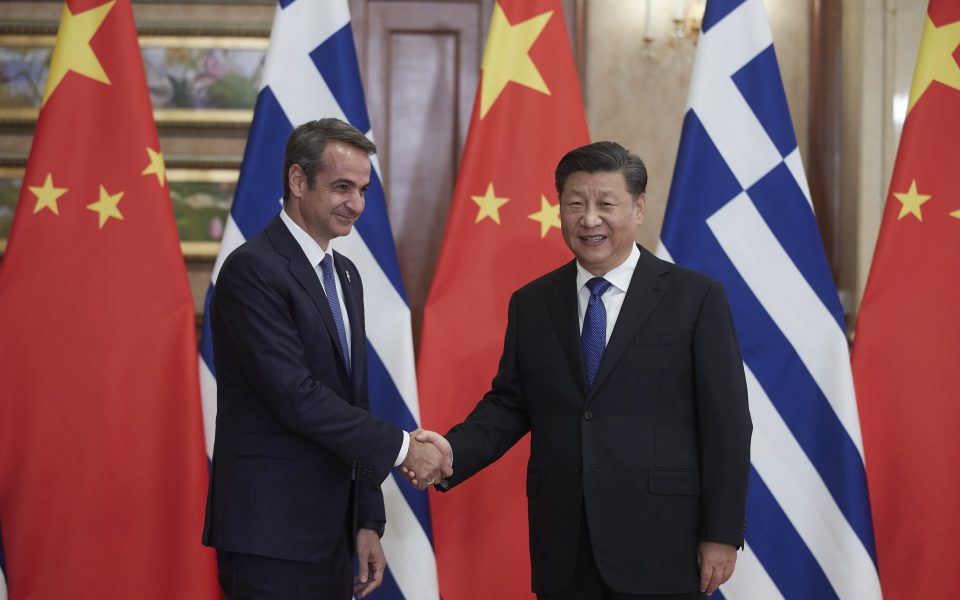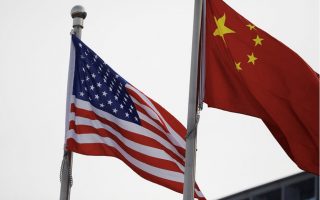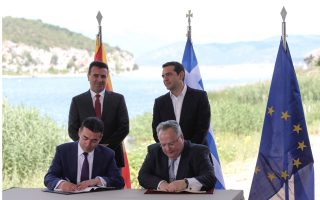Greece’s pragmatism vis-a-vis China

The last weeks have been significant for Greek foreign policy. Prime Minister Kyriakos Mitsotakis attended June’s NATO summit that elaborated on the new priorities of the Alliance in the era of American-Russian and Sino-American antagonism. He also had a telephone conversation with Chinese President Xi Jinping as Greece and China on the occasion of the 15th anniversary of their Comprehensive Strategic Partnership. Although the current period differs from that of the Cold War due to the complexity of the globalization nexus and the unprecedented asymmetry of technological progress, Greece has a diachronic experience of placing itself in an environment of geopolitical competition.
The fundamental principle that Greece belongs to the West – as Konstantinos Karamanlis had proclaimed – remains topical and unchallenged. Karamanlis, however, had not considered this principle a barrier preventing closer ties with the East. His November 1979 visits to Moscow and Beijing outlined his foreign policy vision. Decades later, Kyriakos Mitsotakis is following the same path – as his predecessors Andreas Papandreou, Kostas Simitis, Kostas Karamanlis, Antonis Samaras and Alexis Tsipras had also done.
A comparison of the policy of Konstantinos Karamanlis and Kyriakos Mitsotakis is interesting because it reveals the almost homogenous concerns Athens shares with Beijing, albeit at different junctures. These clearly refer to Turkish behavior in the Eastern Mediterranean. According to the official readout of the Mitsotakis-Xi conversation, the Greek premier expressed his appreciation of China’s position on the Cyprus question as a permanent member of the UN Security Council. He also said he considers international law a sine qua non parameter for de-escalation to bear fruit in the Eastern Mediterranean. The historical archive of Konstantinos Karamanlis demonstrates that the former premier had employed a similar approach when talking to Chinese leader Deng Xiaoping in 1979, five years after the Turkish invasion of Cyprus.
The more China grows, the more its global responsibilities increase. While peace and stability are in its interest, its contribution to their preservation varies and acquires distinct characteristics per geographical area. Regional hotspots are a worry to the international community and require specific answers. Last year, Greek-Turkish tensions in the Eastern Mediterranean became a small-scale version of the situation in the South China Sea. The Cyprus question, in particular, constitutes an example where China’s clout in evoking the UN framework and multilateralism will matter. As long as Athens and Beijing are engaged in sincere dialogue, the relationship can move forward.
Dr George N. Tzogopoulos is a fellow at the Hellenic Foundation for European and Foreign Policy (ELIAMEP), the Institute of European and International Studies (CIFE) and the Begin-Sadat Center for Strategic Studies (BESA). His third book, “The Miracle of China: The New Symbiosis with the World,” will be published by Springer in September.{IDIOT}





